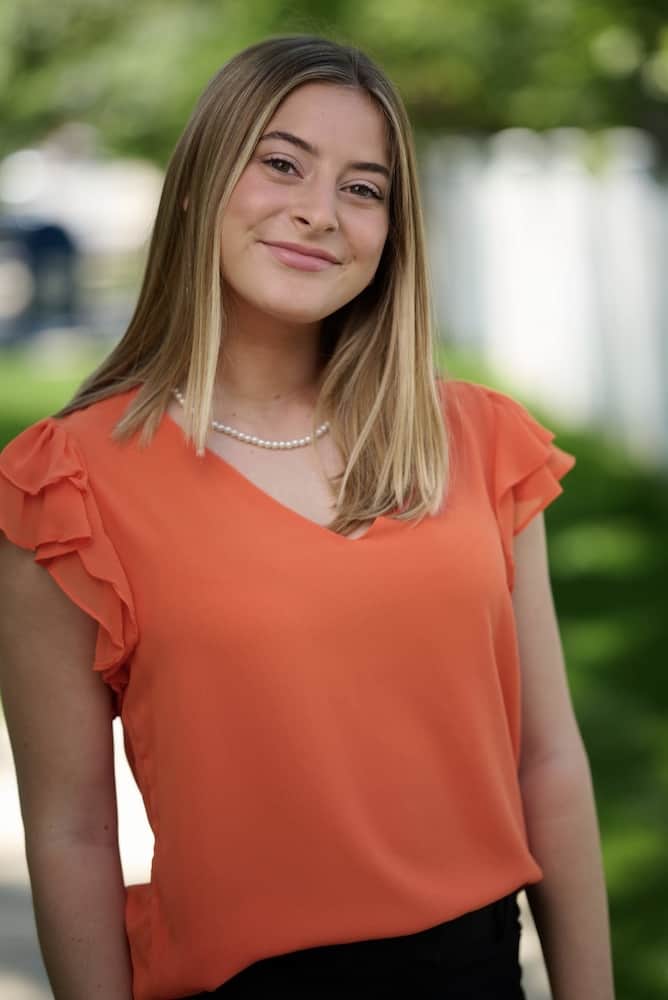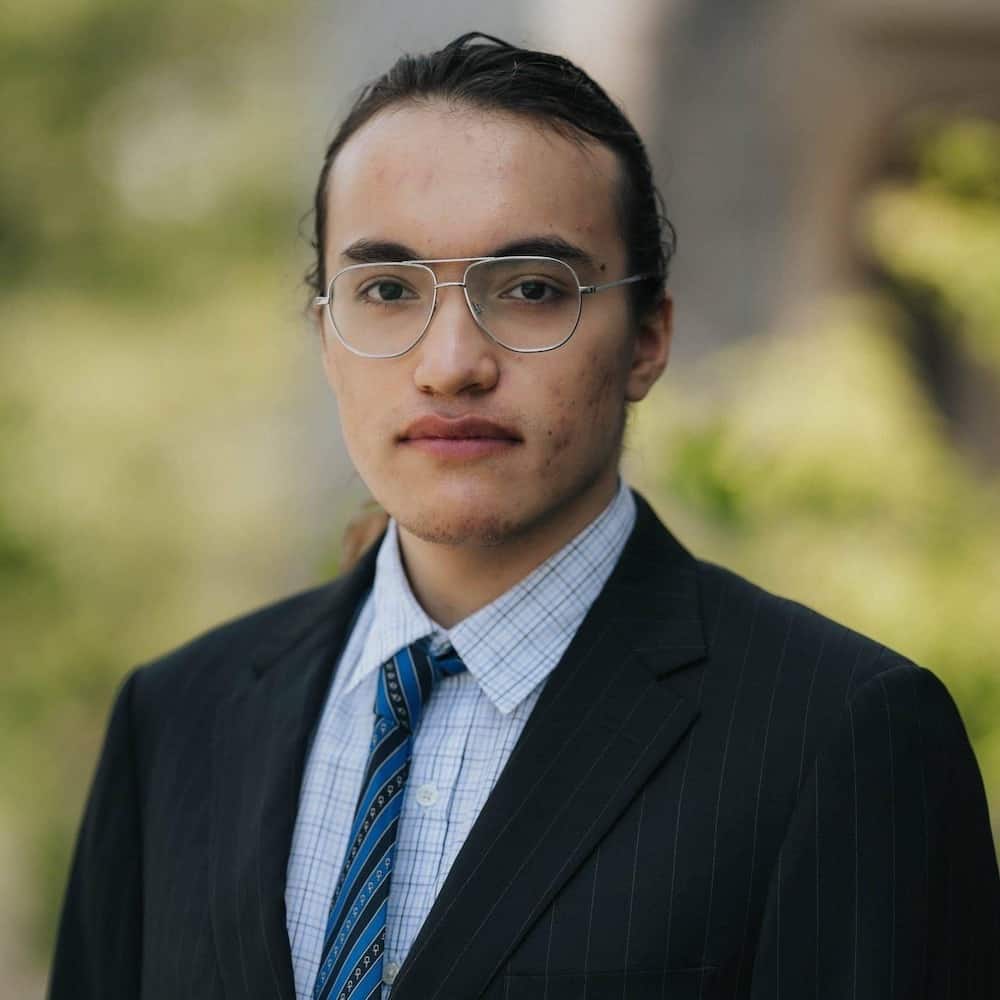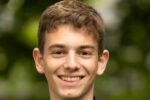The Diller Teen Tikkun Olam Awards recently honored two Massachusetts recipients for groundbreaking ideas in entrepreneurship and political activism. The Awards celebrate repairing the world, or tikkun olam. Each winner receives $36,000 to further their initiative or education.
Harvard University’s Ariel Beck is a 2022 winner. She’s now a college sophomore, but she’s also a passionate entrepreneur: As a high schooler in Washington, D.C., she founded Girls Who Start, a non-profit organization inspiring young women in middle school, high school and college to become entrepreneurs and leaders.
“I wanted to combat gender inequality in the entrepreneurial and business world,” she said. “And so our mission is to inspire middle school, high school and college girls to become entrepreneurs and leaders. We basically do this in three ways: We inspire by creating events that showcase female entrepreneurs, we build by giving girls the tools that they need to develop their leadership skills, and we connect by creating a community of future female entrepreneurs and leaders who want to change the world.”
Today, it reaches more than 2,500 girls and maintains over 50 chapters across the country and internationally, most recently in Ethiopia and Mongolia. The organization holds events that showcase female entrepreneurs and connects future female entrepreneurs to mentors and role models. They host design challenges, hackathons and workshops that teach girls how to foster their ideas, launch prototypes, develop business plans and pitches and lead teams. Young women also practice entrepreneurship and leadership by creating and organizing their own chapter events and taking roles in the group.

“Many of our members have started ventures as a result of their programming, which just proves that we can have an impact and really increase the number of women-founded companies and really impact gender inequity,” she said.
Beck is especially proud of alumnae innovations in traditionally male areas, like female hygiene and beauty products.
“When you’re going to pitch to a panel of venture capitalists who are disproportionately male, they don’t understand the need for these ideas,” she said.
Related
The inspiration arrived roughly around when she became a bat mitzvah, when she attended a conference of female entrepreneurs with her mom, Bluemercury founder Marla Beck.
“I realized how fortunate I had been to be surrounded by female role models my whole life, and I really wanted to help other girls gain the same experience,” she said. “When I went home, I became more invested in promoting female entrepreneurship. I did some research, and the information I uncovered was absolutely startling. I found that, at the time, 5% of all venture capital funding went to female-founded companies, meaning that 95% went to male-led companies. Just upon learning this, I knew I wanted to dedicate myself to change these numbers.”
Beck has served as founder and president of Girls Who Start for the past six years, balancing school and extracurricular activities. Once she arrived at college in 2021, she recruited 20 more women to help run day-to-day operations. A $36,000 award from Diller will help.
“I applied to the Diller Awards because I felt a very strong connection to my Jewish heritage. I want to channel this energy into Girls Who Start and use my Jewish community experience as a guide to empower other women. It’s about tikkun olam, which means repairing the world. I’ve learned that repairing the world and giving back to others has more than a physical aspect. Girls Who Start is about empowering others and creating a safe space where everyone can share ideas and learn and connect with one another,” she said.
Nathan Balk King is a senior at the University of Massachusetts – Amherst. He won a Diller award in 2020. King is half-Jewish and half-Rosebud Sioux.
In high school, he attended a national model U.N. conference in New York City, and noticed a startling lack of Native American representation.
“If you go to this conference,” he said, “either your school has a lot of money or your school fund-raised a lot of money. A lot of these schools were these big, international private schools. The people for whom we were discussing solutions to improve their lives were not part of the conversation and probably wouldn’t be.”
This was particularly poignant because, when King was eight years old, his mother took him to the United Nations Permanent Forum on Indigienous Issues.

“In the back of my mind, since I was really young, I associated the United Nations with a platform for Native Americans to discuss global indigenous issues. When I was at the model U.N., I didn’t notice any other Native American students or specifically indigenous delegations there. If someone were to do a U.N. Permanent Forum on Indigenous issues simulation, there wouldn’t have been indigenous people actually there in the conversation,” he said.
In response, he started Model United Nations: Indigenous (MUNI) to empower indigenous communities by giving Native high school students the tools, impetus and confidence to participate in public policy and human rights advocacy, from the community level to the global stage.
He recruited 12 delegates and fundraised to send them to the next year’s National High School Model U.N. conference. The International Model United Nations Association (IMUNA) endorsed MUNI and included the U.N. Permanent Forum on Indigenous Issues at NHSMUN for the first time in its 45-year history.
Now, MUNI offers an online education service for Native youth to learn about indigenous human rights, the United Nations and Model United Nations, and hosted a virtual MUN: Indigenous conference due to the pandemic. The Diller funds will help fund mentors to keep the program going as King continues his physics studies beyond college.
“There’s something missing when you’re talking about benefiting certain people’s lives or trying to fix a certain issue that people experience; there’s something lost, when you don’t include those people who’ve experienced it firsthand,” he said.
“The upward political mobility of indigenous peoples is very difficult, and there aren’t a lot of venues for it. If you’re an indigenous high school student and you want to become a politician, or you want to become a world leader at the United Nations, there are not a lot of doors open for that to happen, especially if you’re from the reservation, you’re in a poor area, or you don’t go to as to a nicer school.”
As a child, King couldn’t afford to attend a Hebrew studies program after school, but the community provided him with opportunities to participate for free or reduced cost. Now, he’s paying it forward.
“The value of education is beyond money,” he said.
Each year, the Helen Diller Family Foundation recognizes up to 15 extraordinary Jewish teenagers from across the United States with an award of $36,000 each to honor their initiatives to help change the world. Nominate a young leader today or teens can apply directly by Jan. 5, 2023.




